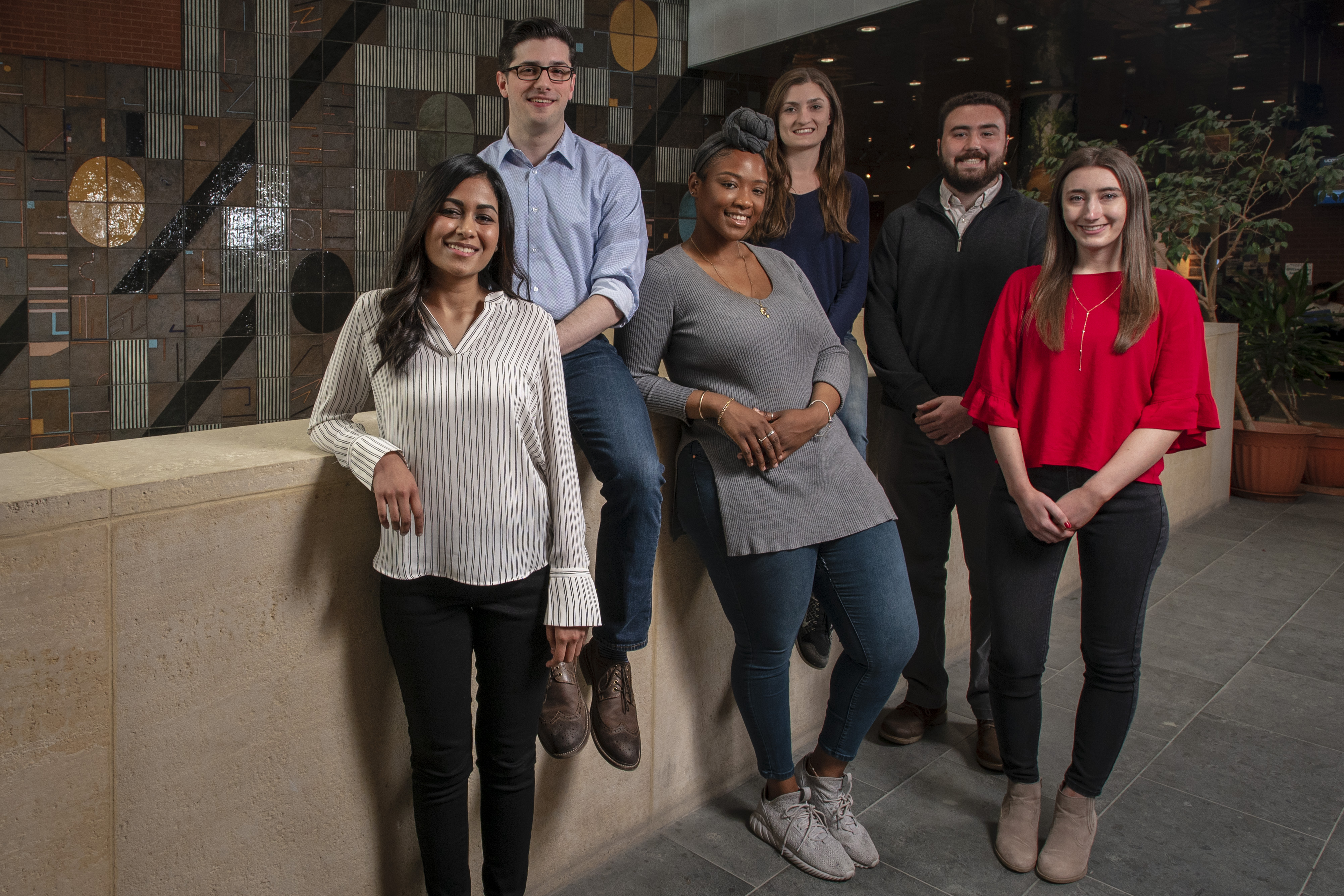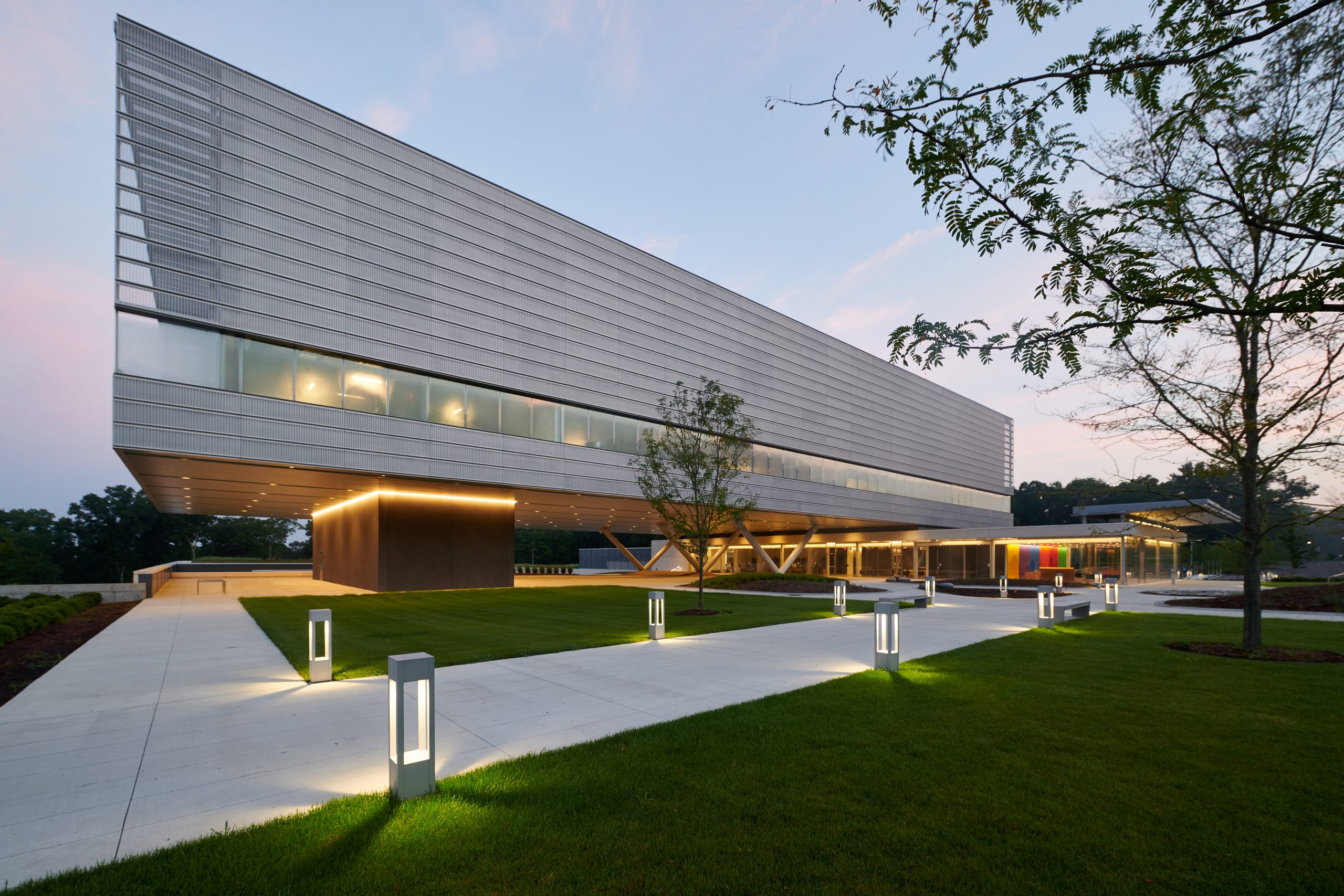Four UConn undergraduates, two graduate students, and five alumni have won National Science Foundation Graduate Research Fellowships (NSF-GRFP).
The NSF Graduate Research Fellowship is the gold standard when it comes to federally-funded fellowships for aspiring scientists. — Vin Moscardelli
The oldest graduate fellowship of its kind, the NSF-GRFP recognizes and supports outstanding graduate students in NSF-supported STEM fields who are pursuing research-based master’s and doctoral degrees at accredited institutions in the United States. In addition to a three-year annual stipend of $34,000, plus another $12,000 paid to the student’s home institution, fellows have access to a wide range of professional development opportunities over the course of their graduate careers.
The Graduate Research Fellowships are highly competitive, with annual acceptance rates of about 14% from the more than 12,000 applicants.
“The NSF Graduate Research Fellowship is the gold standard when it comes to federally-funded fellowships for aspiring scientists,” says Vin Moscardelli, director of UConn’s Office of National Scholarships & Fellowships. “These fellowships are investments in both the science and the scientist. Reviewers are commenting not only on the quality of an applicant’s research proposal, but on the potential of the individual researcher to make a mark.”
The number of winners UConn has produced has been on the rise over the years, with an average of 5.75 winners from 2012-2015, and now an average of 10.75 in the years since.
The four undergraduate winners are:
Shaylin Cetegen ‘19 (ENG), of Glastonbury, Connecticut, is graduating with honors chemical engineering with a minor in mathematics. She served as vice president of UConn’s American Institute of Chemical Engineers and Omega Chi Epsilon chapters. Cetegen was an undergraduate researcher in the Suib Group and the Processing Systems and Operations Research Laboratory at UConn and also held research internships at RWTH Aachen University (Germany) and Lawrence Livermore (California) National Laboratory. Cetegen will begin a doctoral program at UC Santa Barbara and hopes to develop technology to improve energy, water, and food security throughout her career.
Eric Lepowsky ’19 (ENG), of Simsbury, Connecticut, is graduating with a bachelor’s degree in mechanical engineering with a minor in mathematics. An Honors Scholar and University Scholar at UConn, he was an undergraduate researcher in Tasoglu Lab at UConn and served as an undergraduate teaching assistant. Lepowsky was the recipient of a Summer Undergraduate Research Fund grant from UConn and a NASA Connecticut Space Grant undergraduate fellowship, in addition to interning at the MIT Lincoln Laboratory in Lexington, Massachusetts. He will pursue a doctoral degree at Princeton, where he will study high-intensity lasers, plasma physics, and light-matter interactions.
Leann McLaren ’19 (CLAS), of Manchester, Connecticut, is graduating with a political science and history double major in the honors program. She currently serves on the College of Liberal Arts and Sciences Leadership Board and has served as the vice president of the UConn’s chapter of the NAACP. Her research interests center on American public opinion, voting behavior, race and ethnicity, and immigration politics. Specifically, McLaren is interested in black immigrant voting behavior and political incorporation. McLaren was a 2018 Ralph Bunche Summer Institute Scholar with the American Political Science Association (APSA) at Duke University. She has presented her research at the 2018 meeting of the APSA, the 2018 Emerging Scholars Conference, the 2019 meetings of the National Conference of Black Political Scientists and the Midwest Political Science Association. McLaren is also a 2019-2020 Minority Fellowship Program recipient from the APSA. She will be pursuing a doctoral degree in political science at Duke in the fall.
Hetal Patel ’19 (ENG), of South Windsor, Connecticut, is majoring in materials science and engineering and minoring in computer science and mathematics. She is an Honors Scholar, a STEM Scholar, a 2018 University Scholar at UConn. Patel has been conducting materials science research since her freshman year. Patel has published her work in Nature Communications and presented her findings at an international materials science conference. She is also the recipient of a NSF fellowship and National Defense Science and Engineering Grant (NDSEG) fellowship, which will fund her graduate studies. Patel will attend the University of California, Berkeley, to pursue her doctoral degree in materials science and engineering in the field of computational materials science. At UC Berkeley she will be utilizing atomic-scale quantum mechanical based modeling methods and high-performance computing technology to design and discover materials for battery and other energy storage technologies.
The two graduate student winners are:
Angela Lanning is a second-year doctoral student in the civil and environmental engineering department. She studies the system-level performance of bridge columns with advanced materials. This summer, Lanning will be conducting large-scale experiments on a novel bridge column system in UConn’s structures lab. Lanning also mentors underrepresented students in STEM fields, aiming to expose younger students to research related activities. She is a native of Bellevue, Washington, and earned her undergraduate degree from Gonzaga.
Connor Ligeikis ’17 (ENG) will receive his master’s in civil engineering this spring with a concentration in structural engineering. He received his undergraduate degree from UConn as an honors scholar in civil engineering. As an undergraduate, he participated in the Honors Across State Borders alternative spring break program, and was a member of the UConn Concrete Canoe team. As a graduate student, he was a recipient of a Graduate Assistance in Areas of National Need fellowship from the U.S. Department of Education. He has conducted research at ETH Zurich university in Switzerland and attended workshops in Italy and Costa Rica. His master’s thesis research focused on the development and validation of uncertainty quantification techniques for the real-time hybrid substructuring vibration testing method. This summer, he will be participating in the Nonlinear Mechanics and Dynamics Research Institute at Sandia National Laboratories in Albuquerque, New Mexico. Ligeikis will be attending the University of Michigan in the fall to pursue a doctorate in civil engineering with a concentration in intelligent systems. He is a native of Binghamton, N.Y.
Five additional UConn alumni who are now pursuing graduate studies elsewhere also earned NSF Graduate Research Fellowships:
Aiden Ford ’17 (CLAS), a fellow at the Marcus Autism Center in Atlanta; Jessica Griffin ’17 (CAHNR), who is studying life sciences at San Diego State; Alyssa Mathiowetz ’18 (CLAS), who is studying life sciences at the University of California-Berkley; Catherine Nowakowski ’17 (ENG), who is studying geosciences at the University of Rhode Island; and Noelle Wig ’18 (CLAS), who is currently a research assistant at UConn and will begin her doctoral studies here in the fall.
The Office of National Scholarships & Fellowships is a resource for high-achieving students interested in learning more about the NSF Graduate Research Fellowship and other scholarships and fellowships that support graduate study in all fields. For more information about STEM fellowships specifically, contact Rowena Grainger, STEM fellowships adviser.



